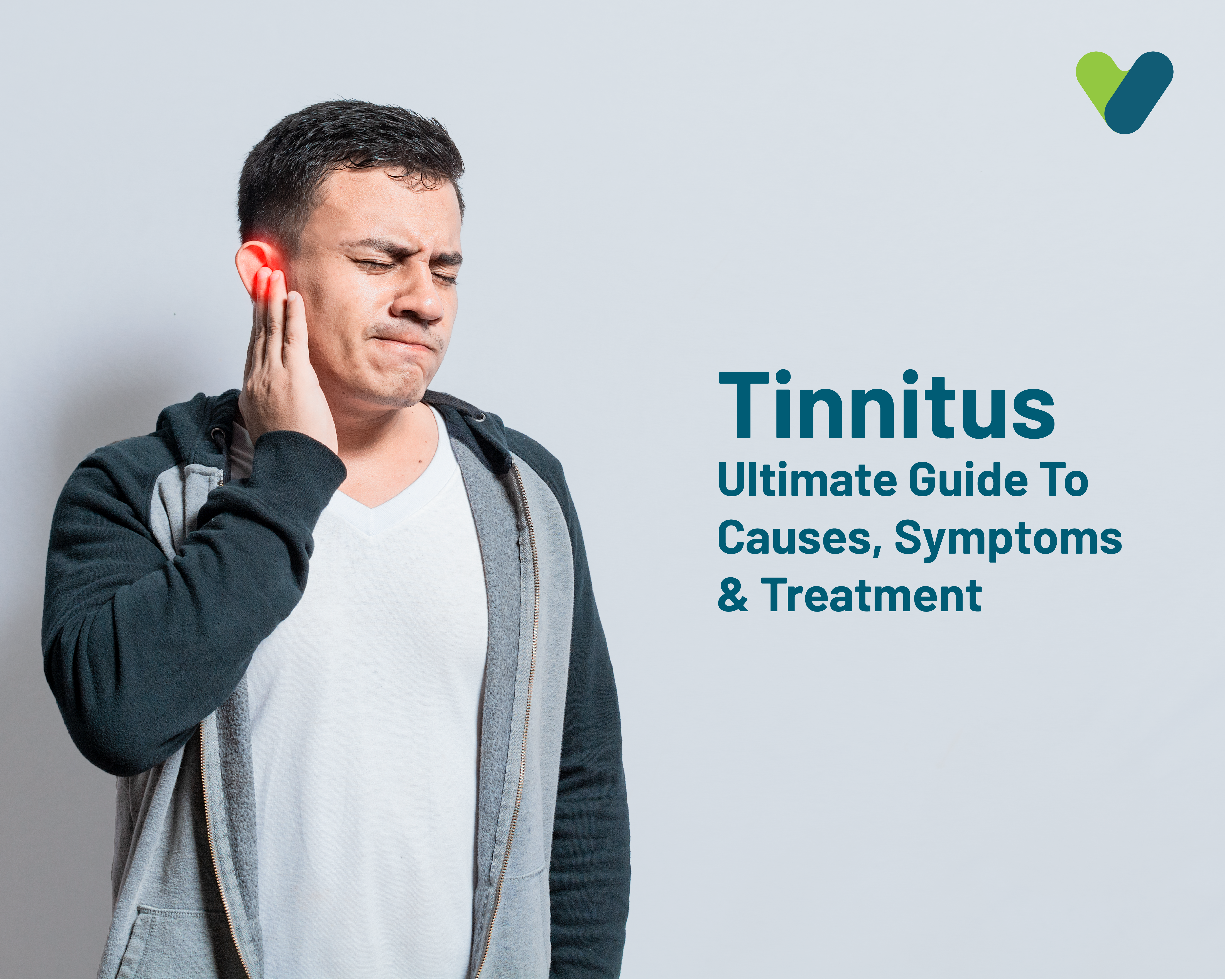Imagine sitting in a quiet room, but there is this ringing or buzzing that won't let go of your ears. Such was the case of John, a 45-year-old accountant who reported waking up every day with constant ringing or buzzing. At first he shrugged it off, but as the weeks became months, the ringing would not go away and was keeping him awake and stressed out. John was suffering from tinnitus, a condition more common than people think. John's case is far from typical. For most, tinnitus would only be a small nuisance, but to some, it becomes that unbearable bane in their lives. Whether you are like John, who hears constant ringing or suffers occasional episodes, you should know the reasons, symptoms, and available treatments for tinnitus.
What Is Tinnitus
Tinnitus is a medical condition that involves hearing when there is no audible external sound. Frequently, it's the "ringing in the ears," although it may also be described as hissing, buzzing, clicking, or roaring noises. It affects one or both ears and may be mild or serious in degree. The condition itself isn't a disease, but rather a symptom of underlying health issues. While some people can manage it without much discomfort, others may find it disruptive to daily life. Now you may have got the answer to the question, what Is Tinnitus?Tinnitus Causes
There are many different reasons for tinnitus and its cause needs to be identified in order to effectively manage the condition. Probably the most common reason is through exposure to loud noises, such as attending concerts or working in an industrial environment. This action can damage the tiny hair cells of the inner ear, causing either hearing loss as well as tinnitus. Advanced age is another very common factor; many people suffer from tinnitus when the natural degeneration of hearing that often comes with aging, presbycusis, causes it. Other causes include ear infections, earwax blockages, and middle ear conditions like otosclerosis. Medications and antibiotics, aspirin, and chemotherapy drugs are also known to have been associated with causing tinnitus as a result of their side effects. Stress and anxiety also contribute to the worsening of tinnitus symptoms, so it is a cycle in which emotional pain amplifies the ringing or buzzing.Tinnitus Symptoms
The main Tinnitus Symptoms involve the stimulation of phantom noises. These can differ from one person to another. Some hear ringing, while others might hear buzzing or roaring or even pulsating. Intensity and consistency may change, and it may be constant or intermittent. Apart from the definite auditions, tinnitus brings about secondary effects like loss of ability to concentrate, sleep disturbances, irritation, and depression in extreme circumstances. In John's case, the disease can totally rampage an individual's mind with effects that aren't just related to hearing but also mental health.Tinnitus Diagnosis
Diagnosis of tinnitus usually begins with a thorough hearing examination. The medical history will be reviewed, and a set of hearing tests will be conducted on the patient in an audiologist or ENT specialist to determine if there is present hearing loss. Additionally, an MRI or CT scan may be run to rule out a structural abnormality or underlying disease that could be the cause of tinnitus. Another important tool in diagnosis is the Tinnitus Matching Test, wherein the audiologist will play a series of sounds to match the pitch and volume of the noise heard by the patient. These tests help identify the type and severity of tinnitus, which is important in preparing the appropriate treatment.Tinnitus Treatment
There is no known cure, but there are many ways of Tinnitus Treatment that can minimize its effect. The treatment approach depends on the cause, and usually, the underlying cause will determine the line of action. For example, removal of a blockage caused by earwax may solve the problem. A person suffering from tinnitus may respond very well to tinnitus-masking hearing aids, especially in cases of tinnitus-related hearing losses. These tools do not only amplify the external sounds surrounding the individual but also mask the external noises created by tinnitus, making it less irritating. Another promising treatment is Cognitive Behavioural Therapy. This approach focuses on cognitive reconditioning in a way to help the patient cope with the emotional stress brought on by the condition. It's also done by sound therapy or Tinnitus Retraining Therapy (TRT) that can desensitize patients to the noise by gradually introducing external sounds in order to reduce the focus of the brain on the tinnitus.How to stop ringing in ears immediately?
Here are some quick strategies to help manage ringing in the ears (tinnitus):- Change Your Environment: Move to a quieter area or use white noise machines or fans to mask the sound.
- Relaxation Techniques: Practice deep breathing, meditation, or mindfulness to reduce stress, which can exacerbate tinnitus.
- Ear Protection: If you’re in a noisy environment, use earplugs to protect your ears from further irritation.
- Hydration: Drink water to stay hydrated, as dehydration can sometimes worsen tinnitus.
- Limit Stimulants: Reduce caffeine and nicotine intake, as these can aggravate tinnitus.
- Distraction: Engage in activities that capture your attention, such as listening to music or reading.
- Head Positioning: Sometimes, adjusting your head or neck position can help reduce the perception of tinnitus.


